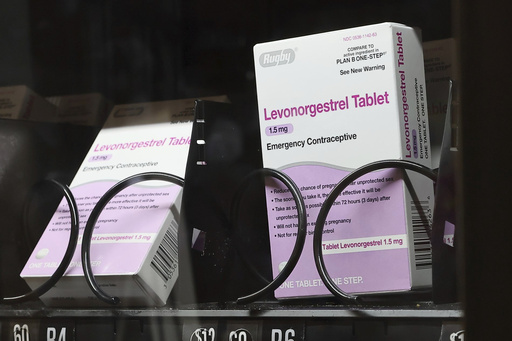
In a recent announcement, the White House revealed a new proposal aimed at enhancing access to over-the-counter contraceptives for individuals with private health insurance. Under this proposed regulation, individuals would be able to obtain items such as condoms, birth control pills, and emergency contraceptives, commonly referred to as the “morning after” pill, at no cost. This development marks a significant shift from the current system, where insurers only cover prescribed contraceptives, including prescription birth control or condoms that require a doctor’s approval.
The timing of the proposal aligns closely with upcoming Election Day, where Vice President Kamala Harris is focusing her campaign on improving women’s health care access, especially in the aftermath of the U.S. Supreme Court’s controversial decision that overturned nationwide abortion rights two years earlier. Harris aims to distinguish her platform sharply from that of her Republican opponent, Donald Trump, who was instrumental in appointing some of the justices behind this ruling.
Jennifer Klein, who leads the White House Gender Policy Council, emphasized the administration’s ongoing commitment to women’s reproductive health. She underscored that ensuring women’s autonomy over personal health care choices, such as family planning, is a top priority: “Today’s announcement builds on the Biden-Harris Administration’s strong record of defending access to reproductive health care,” Klein stated in a press release.
Among the over-the-counter options that will be available without charge are emergency contraceptives like levonorgestrel, better known by the brand name “Plan B.” Typically, without a prescription, women might have to spend up to $50 for this important medication. Moreover, delays in obtaining a prescription could undermine its effectiveness, as it is most effective when taken within 72 hours post-intercourse.
Should this rule be put into effect, it would also mandate that health insurers fully cover the costs for the newly approved Opill, a daily birth control pill accessible over the counter, which is priced at $20 for a month’s supply. The regulation builds upon the contraceptive care framework initiated by the Affordable Care Act, which first obligated insurers to cover FDA-approved birth control prescribed by medical professionals as a preventative healthcare service.
It’s important to note that this proposed rule does not extend to individuals enrolled in Medicaid, the program designed for lower-income Americans. Coverage rules for Medicaid, particularly regarding contraceptive services, are determined at the state level, and few states currently provide coverage for over-the-counter contraceptive options such as Plan B or condoms.
